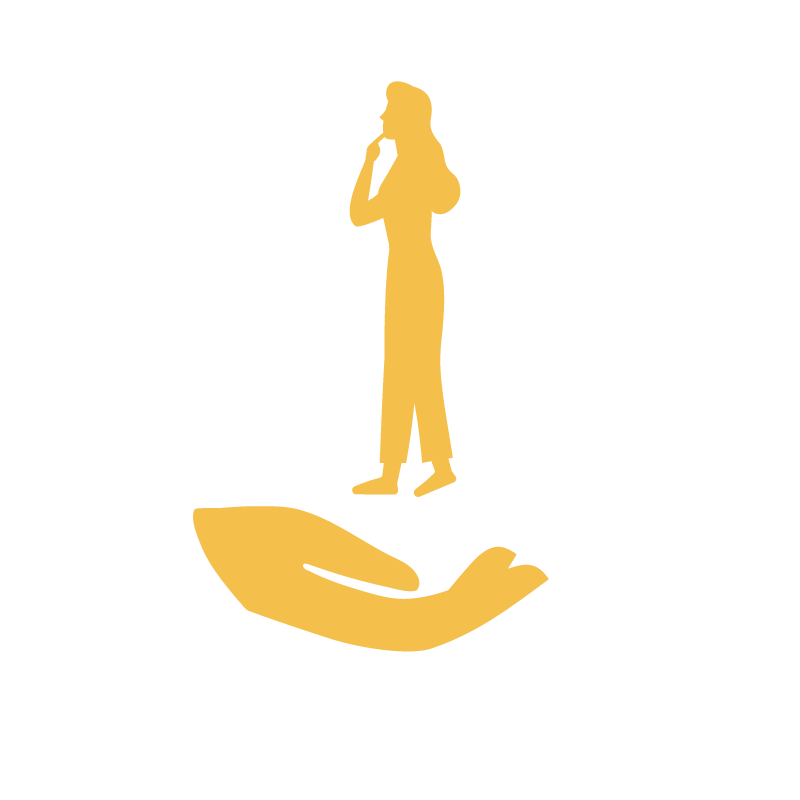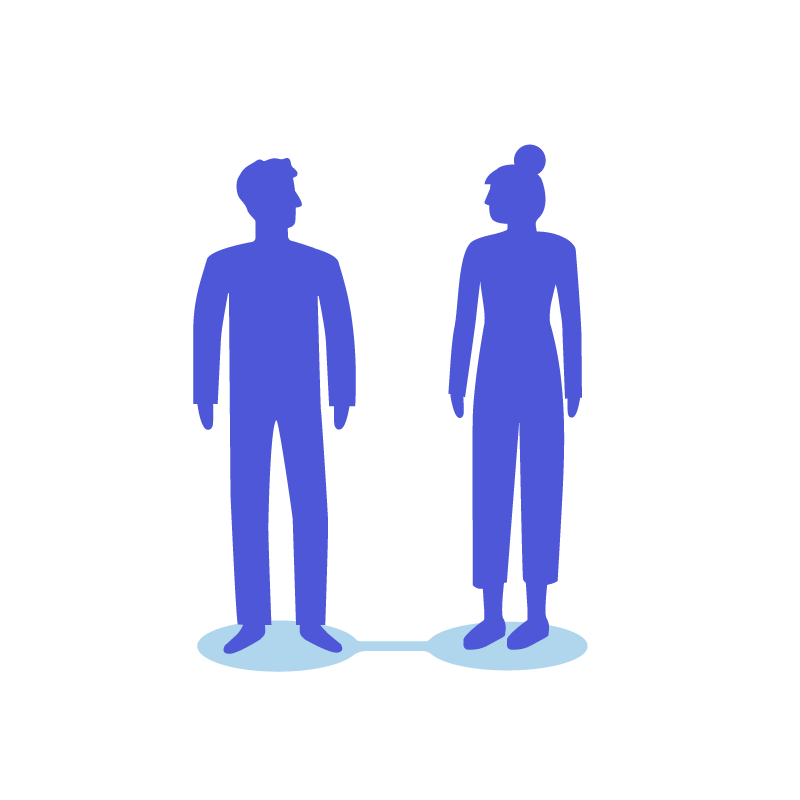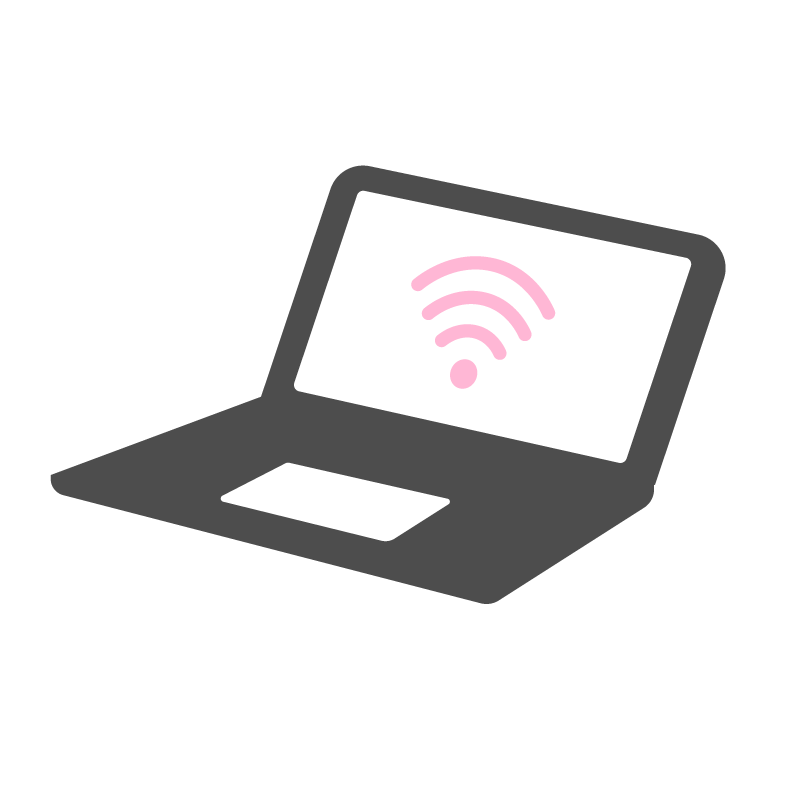Let's talk about it podcast: Everything you need to know about pregnancy

This podcast answers common questions about pregnancy such as "How can i find out if i'm pregnant?" or "How long does pregnancy last?"
Click on the play button below and start listening.
00:00:02
Welcome to “Let's talk about it” podcast — brought to you by Laaha
00:00:12
Laaha is an open, online platform where women and girls
00:00:15
can get information about their health, wellbeing, and safety.
00:00:27
Please remember: All content provided on the platform
00:00:30
is based on scientific knowledge for educational purposes only.
00:00:34
It is not intended to be a substitute for professional medical advice or treatment.
00:00:46
My name is Maya, and I’m here to answer common questions about pregnancy
00:00:50
help you better prepare for it.
00:00:53
How and when can I find out that I am pregnant?
00:00:56
For many, the first sign of pregnancy is a missed period.
00:00:59
Other early pregnancy symptoms include feeling tired, feeling bloated,
00:01:04
, peeing more than usual, mood swings, nausea, and tender or swollen breasts.
00:01:09
Not everyone has all of these symptoms, but they are fairly common.
00:01:13
The only way to know for sure whether you are pregnant, is to take a pregnancy test.
00:01:18
In many instances, you can purchase a pregnancy test
00:01:21
from a pharmacy or drug store and take the test privately at home.
00:01:25
You can also visit a health center or your doctor’s office to get a test done.
00:01:30
How long does pregnancy last? Pregnancy lasts about 40 weeks.
00:01:35
The stages of pregnancy are divided into 3 trimesters.
00:01:39
Each trimester is a little longer than 13 weeks.
00:01:42
You’ll go through many changes during each trimester.
00:01:45
Some women feel discomfort at different stages. Others don’t feel much at all.
00:01:50
During this time, the baby and your womb will grow.
00:01:54
How common is it to lose a pregnancy?
00:01:57
Most pregnancy loss — called miscarriage — happens in the first trimester.
00:02:01
Miscarriage is when an embryo or fetus dies before the 20th week of pregnancy.
00:02:07
Miscarriages happen for many reasons – including specific risk factors
00:02:11
but also could be because of medical conditions in the baby or mother.
00:02:15
No matter the reason, a woman should not be blamed or blame herself for a miscarriage.
00:02:20
Common symptoms of a miscarriage are: vaginal bleeding or spotting,
00:02:24
severe belly pain and severe cramping. Sometimes, miscarriage has
00:02:29
minimal physical symptoms, and you don’t find out until a doctor check up.
00:02:33
Even though miscarriage is fairly common, it can be emotionally difficult.
00:02:38
The experience of losing a baby may differ around the world,
00:02:41
yet stigma, shame, and guilt are common. The amount of time it takes to
00:02:46
emotionally and physically heal after a miscarriage are different for everyone.
00:02:51
Give yourself as much time as you need to grieve. Finding someone you trust
00:02:55
to talk to about your experience and feelings can be helpful.
00:02:59
If you know a woman or girl who has had a miscarriage,
00:03:02
it can be difficult to know what to say. Empathy and a listening ear
00:03:07
can provide support and allow space to talk about how they feel.
00:03:11
What care do you need during pregnancy?
00:03:14
Prenatal care is important and should, if possible, include regular checkups
00:03:18
from a doctor, nurse, or midwife throughout your pregnancy.
00:03:22
You can start getting prenatal care as soon as you know you’re pregnant.
00:03:26
Checkup frequency varies by context and availability of medical services near you.
00:03:32
Regular checkups can include blood tests, checks of the fetal heartbeat,
00:03:36
measuring the fundal height. It's important that you communicate
00:03:40
your questions and feelings to your doctor during pregnancy,
00:03:44
and try to take care of your mental and physical health as much as possible.
00:03:49
What do I need to know about birth? Birth will usually happen between week
00:03:53
38 and 42 of your pregnancy, but it can happen earlier or later.
00:03:58
Close to birth, women will start to feel contractions.
00:04:02
This means that their uterus is contracting and relaxing.
00:04:05
Contractions will become more regular and intense as the baby’s birth approaches.
00:04:10
Contractions enable the cervix to dilate and to soften, making way
00:04:14
for the baby to pass through the vaginal canal to be born.
00:04:18
The cervix will dilate from 1 to 10 cm. Once the cervix is fully dilated,
00:04:25
the mother will feel the need to push, this is called the fetal ejection reflex.
00:04:30
Once the baby is out of the woman’s body, the birth will end
00:04:34
with the delivery of the placenta. This phase is sometimes called afterbirth.
00:04:39
Sometimes, due to medical reasons (e.g. if the baby is not in a good position),
00:04:44
the doctor might recommend a cesarean, or C-section.
00:04:48
A cesarean is a medical procedure where an incision is made in the women’s abdomen
00:04:52
and uterus to surgically remove the baby from the uterus.
00:04:56
Women don’t typically feel anything during the procedure
00:04:59
as they are anesthetized from the waist down.
00:05:02
Does vaginal birth hurt?
00:05:04
This is a difficult question to answer, as each woman’s experience is unique.
00:05:09
Some women say yes and say that contractions, pushing
00:05:12
and birthing are all very painful. Many women opt to have an epidural
00:05:17
– an injection of anesthesia that creates a band of numbness
00:05:21
from your bellybutton to your upper legs – to avoid feeling any pain.
00:05:25
Other women say that birth is intense but wouldn’t describe the feeling as painful.
00:05:31
The pain from the contractions stops right after birthing the baby.
00:05:35
However, some women, experience "afterpains".
00:05:38
These are contractions — which often resemble menstrual cramps
00:05:42
— that help prevent excessive bleeding by compressing the blood vessels in the uterus.
00:05:47
Afterpains are common during breastfeeding due to the release of the hormone oxytocin.
00:05:52
They happen in the first few days after the birth of the baby and are completely normal.
00:06:03
If you have more questions or would like to talk to someone – please feel free to find
00:06:08
the contact details of a service provider near you by clicking on the ‘Need help' button
00:06:13
or to search for more articles use the search function or the chatbot.







 Let's talk about it podcast: Everything you need to know about pregnancy
Let's talk about it podcast: Everything you need to know about pregnancy